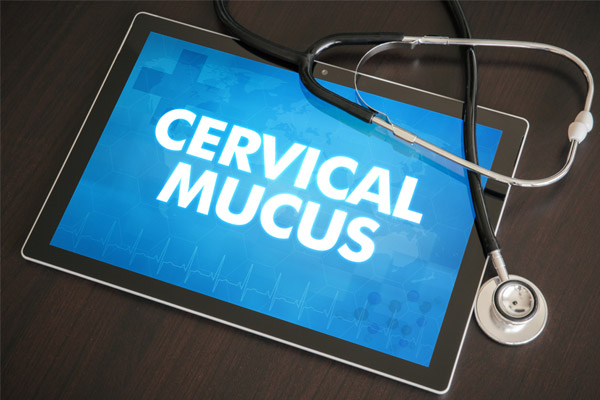Sexual health answers and questions are a little awkward to discuss with your friends and health professionals. Especially those concerning sex and other sex related topics.
Sexual intercourse is an intimate connection between you and your partner. It’s the ultimate expression of your love for each other. But sometimes, that ultimate expression can lead to something that both of you are not yet ready to commit to. Maybe it’s not the right time yet. Now, the best thing you can do to prevent that from happening is abstaining from sex.
But that would be a little absurd, right? I know you may have already learned about timing your activities with your menstrual cycle. I know you’ve tried condoms too. But are there other forms of female contraception that would not rob the joy of having sex? Here are some of the answers to your common medical questions:
1. Is Counting Your Days The Safest Method?

Counting the days of your cycle is one of the best methods of natural contraception. This method is also known as the calendar or rhythm method. But, this can be a little tricky and requires a little monitoring from your part. Counting the days is one of the cues. But you can’t rely on it alone. Here is the formula on how to use it. But be warned, this is not absolute and your body chemistry can affect this and may result to faster or slower ovulation.
But before you use the formula, you have to document your cycle for at least six months to see your shortest and longest cycle. Take note that the first day of bleeding is the first day of your cycle.
Now, let’s say you got 26 days for your shortest cycle and 34 days for your longest cycle. Subtract 18 from the shortest cycle and subtract 11 from your longest cycle. You will get 8 and 23. This is your average fertile period. This means that having sex on the 8th to the 23rd day of your cycle is unsafe.
Having sex after your bleeding up to the 8th day and the 23rd day onwards is safe. But do note that illnesses, stress, a hormonal surge may affect our ovulation. Now, to combat that, there is one more thing that you can use in combination with the rhythm method. You can also track your basal body temperature to supplement your calendar method.
2. How Do You Track Basal Body Temperature?

Tracking your basal body temperature is not as complicated as the calendar method. You will need to record your body temperature, using a thermometer, before you do anything in the morning. That’s right. Before you get out of bed, you should take note of your body temperature.
Do this every morning, every day. As much as possible, do this at the same time of the day for more accuracy. The data you gather will be your baseline. Take note of the day that you have an abrupt increase of .5 to 1 degrees Celsius. This is the first day of your ovulation. If you are doing this along with the calendar method, this should be around the 8th day after bleeding. When you near you’re the end of your fertile days, your body temperature will gradually decrease to your baseline.
To make everything awesome and near fool-proof, you can employ a third method together with the first two. This is testing the viscosity of your cervical mucus.
3. What Is Cervical Mucus Testing?

As the name suggests, it involves analyzing your cervical mucus. But don’t get me wrong, the cervix is far along the end of the vaginal canal, you don’t have to look for it there! The mucus naturally flows down to the canal and to the opening of the female genitalia. So, when checking for your cervical mucus, you only wipe the opening of the vagina for a sample.
The best way to do it is in the morning before you pee. Using your clean hands, wipe and get a sample of the mucus on the vaginal opening. After your period, you should expect a dry spell for around 3-4 days. That is normal. As you progress in your cycle, you will be producing a cloudy to sticky discharge. You may even notice some in your underwear.
As you near ovulation, your body produces more mucus and tends to be thinner and may look similar to egg whites. This is your unsafe days, and it is recommended that you abstain from having sexual contact or use a barrier method instead.
Related: 7 WAYS TO HAVE BETTER SEX AND GET ONE OF THE LIFE’S GREATEST THRILLS
4. Is Condom Safe And Effective?

When you are on your unsafe days, condoms are the easiest and most convenient way to use to get protected. But is it safe? Condoms have a high level of efficacy, but, they decrease the overall sensation of the intercourse. Condoms are made of different thickness. The thinner the condom, the less it will rob pleasure from both of you. But do consider that a thin condom is more prone to breakage. Breaking a condom while having sex increases the likelihood of getting pregnant.
One more important medical question should be asked when talking about condoms is about allergies. Condoms are made of latex, and if you happen to have a latex allergy, this is not the right contraception for you.
5. What Other Methods Of Contraception Are There?

Aside from the elaborate natural method and the condom method, there are other forms of contraception you could choose from. Pregnancy pills, injectable hormones, and intra-uterine devices are among the popular choices.
But before you try these other methods, you should first ask some health questions to an expert. A visit to the gynecologists’ clinic can bring light on which is the best method for you. After all, having a child is a big responsibility. You wouldn’t want to be caught off guard.
Having sex is a natural thing that couples should enjoy. These methods are proven effective to promote safe sex. The natural ways, when done in combination, is an effective way that will not diminish the pleasures of sex. In your unsafe days, using a protective barrier can be your next best choice!
“Hope you find the post helpful and we excited to hear what you think of it!”






